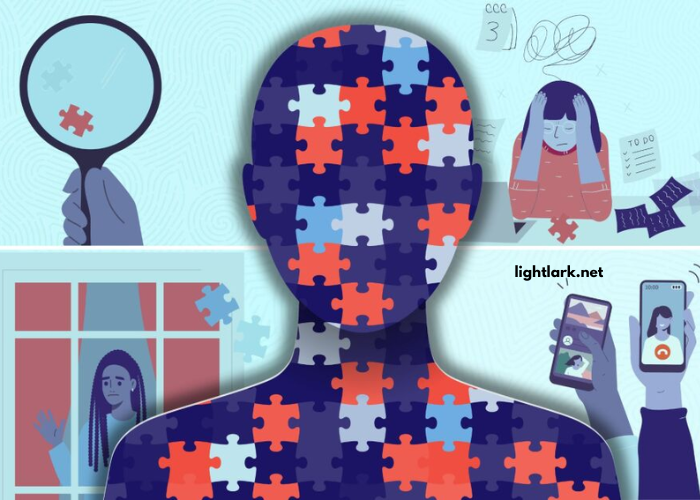In 2025, mental health is expected to be one of the most significant aspects of overall wellbeing. The world is becoming increasingly fast-paced and interconnected, and more people are beginning to recognize the importance of mental health as part of a balanced life. Whether it’s the pressures of work, the challenges of personal relationships, or the impact of global events, mental health has never been more critical. Prioritizing your mental wellbeing in the upcoming years will be essential to leading a fulfilling, productive, and happy life.
In this article, we will explore the evolving landscape of mental health in 2025 and provide actionable strategies to help you prioritize your mental wellbeing.
The Mental Health Crisis in 2025
Global Mental Health Trends
As we approach 2025, it’s clear that mental health will continue to be a pressing global issue. Reports and studies consistently highlight the rising rates of anxiety, depression, and stress-related disorders across all age groups. The World Health Organization (WHO) has recognized the growing mental health crisis, estimating that by 2025, mental health conditions will be one of the leading causes of disability worldwide.
Technology, economic stressors, and societal changes are all contributing factors to the increase in mental health concerns. Social media, for example, has been shown to impact self-esteem and exacerbate feelings of isolation, especially among younger generations. The increased reliance on digital communication also leads to a lack of face-to-face interactions, which are essential for building deep connections and maintaining emotional health.
Understanding the Mental Health Landscape in 2025
The way we view and treat mental health will undergo a significant transformation by 2025. Mental health awareness is gaining traction, and society is beginning to understand the importance of providing proper support. With advancements in psychology, psychiatry, and neuroscience, we will likely see more effective treatments for mental health disorders, including innovative therapies, AI-powered diagnostics, and personalized care approaches.
However, while these advancements are promising, there is still a long way to go in breaking the stigma surrounding mental health issues. In 2025, individuals will need to actively seek mental health support and embrace self-care practices to maintain their wellbeing in a rapidly evolving world.
Key Strategies to Prioritize Your Mental Health in 2025
1. Embrace Digital Mental Health Solutions
By 2025, digital mental health tools will be more accessible and tailored to individual needs. Apps and online platforms offering therapy, meditation, stress management, and mood tracking are becoming an integral part of mental health care. These tools allow individuals to access support anytime and anywhere, offering greater convenience and flexibility.
Popular Digital Mental Health Solutions
- Therapy Apps: Platforms such as BetterHelp and Talkspace allow users to access licensed therapists online, reducing the barriers to seeking help.
- Meditation and Mindfulness Apps: Apps like Headspace, Calm, and Insight Timer provide guided meditations and mindfulness exercises designed to reduce stress and anxiety.
- Mood Tracking Tools: Apps like Moodfit or Daylio enable users to track their emotions, helping identify patterns and triggers for mental health issues.
In 2025, these digital tools will likely become even more advanced, offering customized recommendations based on individual preferences, mental health history, and real-time emotional states.
2. Cultivate Strong Social Connections
While digital tools can provide support, face-to-face interactions and strong social connections remain essential to maintaining mental health. Loneliness and isolation are significant factors contributing to mental health struggles. Therefore, it’s crucial to build and maintain meaningful relationships with friends, family, and colleagues.
How to Build and Strengthen Your Social Connections
- Engage in Regular Social Activities: Join clubs, hobby groups, or professional organizations that interest you.
- Reach Out for Support: If you’re feeling isolated, don’t hesitate to reach out to others. Vulnerability and asking for help are signs of strength, not weakness.
- Prioritize Quality Over Quantity: Focus on building deep, genuine relationships rather than having a large social circle. Quality connections have a more profound impact on your wellbeing.
As remote work and digital communication continue to grow in 2025, it will be crucial to prioritize real-world interactions to combat the potential for social isolation.
3. Practice Mindfulness and Stress Management Techniques
Stress is one of the leading contributors to poor mental health. The pressure to perform at work, the demands of family life, and the constant barrage of information from digital devices can lead to mental and emotional overload. In 2025, managing stress will become even more important, and mindfulness will play a critical role in maintaining mental health.
Practical Mindfulness and Stress Management Tips
- Mindful Breathing: Set aside a few minutes each day to focus on your breath. This simple practice can help center your mind and reduce stress.
- Yoga and Exercise: Regular physical activity not only helps improve physical health but also releases endorphins, which are natural mood boosters.
- Guided Meditation: Use apps like Calm or Headspace to incorporate guided meditation into your daily routine, even if just for a few minutes.
- Time Management: Learn to prioritize your tasks, delegate when possible, and avoid overloading yourself with unnecessary stress.
Mindfulness practices will be increasingly popular in 2025 as they help individuals find balance amid the demands of modern life.
4. Maintain a Healthy Lifestyle
A healthy lifestyle is foundational to both physical and mental health. In 2025, people will be more conscious of the interconnection between physical health and mental wellbeing. Taking care of your body through proper nutrition, regular exercise, and adequate sleep will have a profound effect on your mental state.
Key Components of a Healthy Lifestyle
- Nutrition: Eat a balanced diet rich in nutrients, including vitamins, minerals, and antioxidants. Foods such as leafy greens, berries, nuts, and fatty fish are beneficial for both brain and body health.
- Exercise: Regular exercise releases endorphins and improves mood. Aim for at least 30 minutes of moderate-intensity exercise most days of the week.
- Sleep Hygiene: Ensure you’re getting enough quality sleep. Lack of sleep is closely linked to mood disorders, stress, and impaired cognitive function.
- Hydration: Drink enough water to stay hydrated, as dehydration can affect concentration, energy levels, and overall wellbeing.
By adopting a holistic approach to health that incorporates both physical and mental wellness, you’ll be better equipped to navigate the challenges of the future.
5. Seek Professional Help When Needed
Although many self-care practices can enhance mental wellbeing, there may be times when professional intervention is necessary. In 2025, seeking therapy or counseling will no longer be stigmatized, and individuals will be more open to seeking help when they need it.
When to Seek Professional Help
- Persistent Symptoms: If you’re experiencing prolonged feelings of sadness, anxiety, or hopelessness, it’s time to seek help from a mental health professional.
- Difficulty Coping with Daily Life: If mental health struggles are interfering with your ability to function in daily activities such as work, school, or relationships, professional support can help.
- Traumatic Experiences: Individuals who have experienced trauma may benefit from therapy to process and heal.
Therapists, counselors, and psychiatrists will continue to evolve their approaches in 2025, utilizing both traditional therapies and modern innovations such as virtual therapy and AI-assisted care to provide personalized support.
6. Use Technology to Monitor Your Mental Health
In 2025, technology will be able to help people not only manage their mental health but also predict and prevent mental health crises. Wearable devices and AI-powered tools will be used to monitor stress levels, sleep quality, and emotional states. These devices can provide real-time feedback and insights into your mental health, allowing you to make adjustments before problems escalate.
Mental Health Wearables and Apps
- Wearables: Devices such as smartwatches or rings will track stress levels, heart rate variability, and sleep patterns. By regularly monitoring these metrics, you can gain a better understanding of how your body responds to stress and take proactive steps to mitigate it.
- AI-Powered Apps: Apps powered by artificial intelligence will help analyze your mental health based on daily inputs, such as mood tracking and behavior patterns. These apps will offer customized suggestions to improve mental wellbeing.
By 2025, these technologies will become even more sophisticated, offering deeper insights and greater support in managing mental health.
Conclusion
As we move toward 2025, mental health will be an even more prominent focus for individuals, organizations, and governments worldwide. The evolving understanding of mental health and the advancements in digital and therapeutic tools offer unprecedented opportunities for prioritizing wellbeing.
To maintain your mental health in 2025, embrace digital mental health solutions, cultivate strong social connections, practice mindfulness and stress management, maintain a healthy lifestyle, seek professional help when needed, and utilize technology to monitor your mental health. By taking these steps, you will be better equipped to navigate the challenges of modern life and prioritize your mental wellbeing for years to come.





